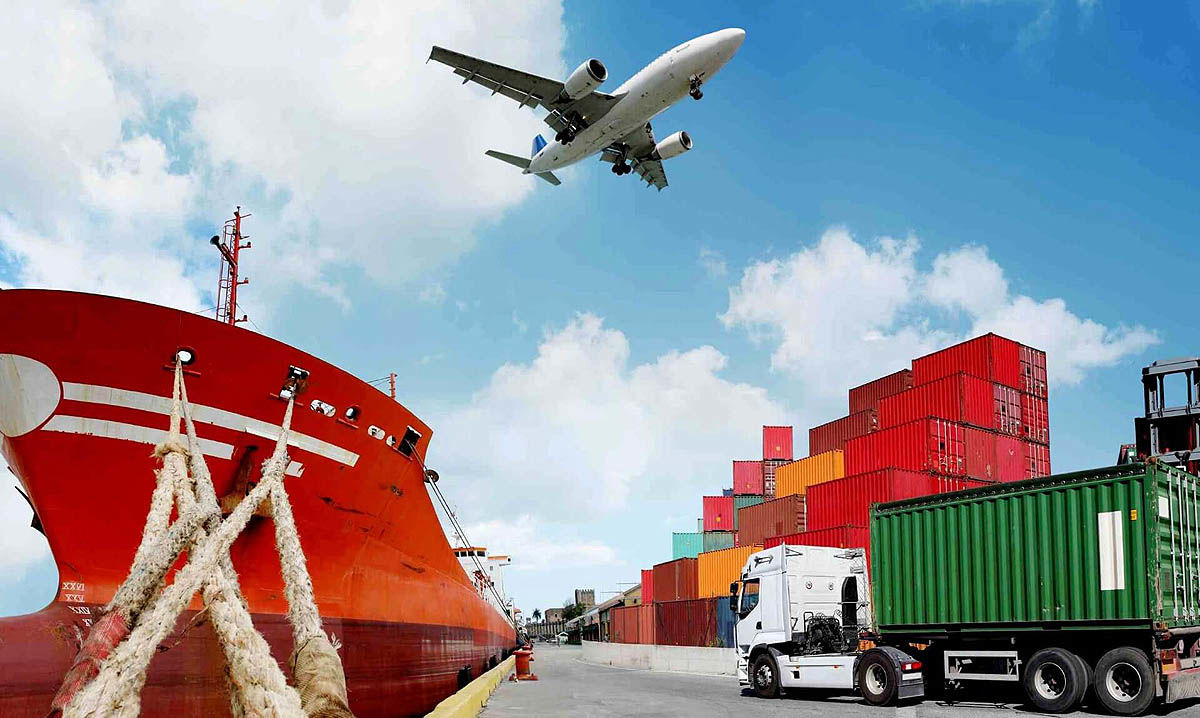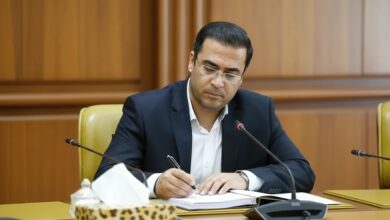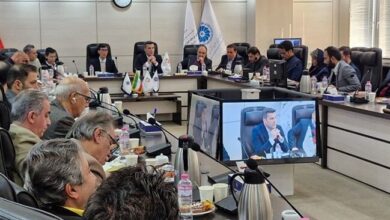
Sea-Oriented Economy in Iran’s Vision Document for 2051
According to RooykardKish News Network, At the launch ceremony of the book titled “Sea Oriented Economy,” the importance of addressing the issues raised during the compilation of the Iran’s 2051vision document was emphasized. It was highlighted that all the capacities of the private sector and the Iran Chamber should be utilized in this process. The unveiling ceremony of the book “Ocean-Oriented Economy” was attended by Ali Aghamohammadi, a member of Iran’s Expediency Assessment Council; Samad Hassanzadeh, the president; and Payam Bagheri, the vice-president of the Iran Chamber.
The book “Sea-Oriented Economy” is a compilation of articles presented at the Kish Sea-Oriented Conference by university professors and researchers, which have been collected into this publication.
During the meeting, the head of the Iran Chamber underscored the significance of a sea-based economy, stating that it is crucial for Iran’s economic development. He noted that both the leadership and the president have emphasized its advancement, yet progress in this area has been limited. Samad Hassanzadeh remarked that Iran possesses significant maritime potential, with access to seas in both the north and south of the country. He pointed out that the coasts of Makran represent a major opportunity for economic growth and sea-oriented development, calling for collaborative policies and plans between the private sector and the government for this region. He also mentioned the achievements of the sea-oriented economy conference held in Kish in mid-November.
Payam Bagheri, the vice-chairman of the Iran Chamber, added that the sea-based economy is a neglected aspect of the country’s economy, yet it has the potential to drive economic development. With approximately 5,700 kilometers of coastline spanning seven provinces, he noted that marine economic activities contribute only five percent to GDP, despite a global marine economy worth over a trillion dollars. He concluded by stating that a sea-based economy is one of the engines of economic development for countries, and in Iran, Makran could exemplify this form of development.
Referring to the policies announced by the Supreme Leader regarding the sea-based economy, Bagheri stated that the sea-based economy sector, as a neglected part of the economy, can be a driving force for the country’s economic stability during both ups and downs. According to statistics, the contribution of the sea-based economy to GDP is 5%. In comparison, this figure is ten times higher in China and Vietnam.
Discussing the Iran Chamber’s initiatives in the field of the sea-oriented economy, Bagheri noted that the Iran Chamber places special emphasis on this sector. In this context, the Iran Chamber has signed a memorandum of cooperation with the Secretariat of the Makran Development Council, which outlines the missions and responsibilities of both parties. The private sector is actively engaged in this field, and attention should be given to the leadership’s statements supporting private sector involvement. The private sector must be supported to effectively contribute to the country’s economy and the development of Makran.
Ali Aghamohammadi, a member of Iran’s Expediency Analysis Council, remarked at the unveiling ceremony of the book “Sea-Oriented Economy” at the Iran Chamber that the private sector has the potential to achieve an 8% economic growth rate. However, he emphasized that transformation in the economy does not occur through annual plans alone; all economic elements must work collaboratively. The head of the economics department of the Supreme Leader’s Office continued by stating that some individuals do not fully understand the role of the Iran Chamber. By becoming a member of the Iran Chamber, one accepts a significant responsibility. The Iran Chamber should concentrate on key issues and fulfill its true responsibilities. When the chamber focuses on the sea-oriented economy, it indicates that it is addressing its essential duties.
Aghamohammadi clarified that Turkey previously sought to connect with Africa through Qeshm Island in Iran. He added that a portion of the 8% growth rate is also linked to trade, and we must establish our position in the global arena.



